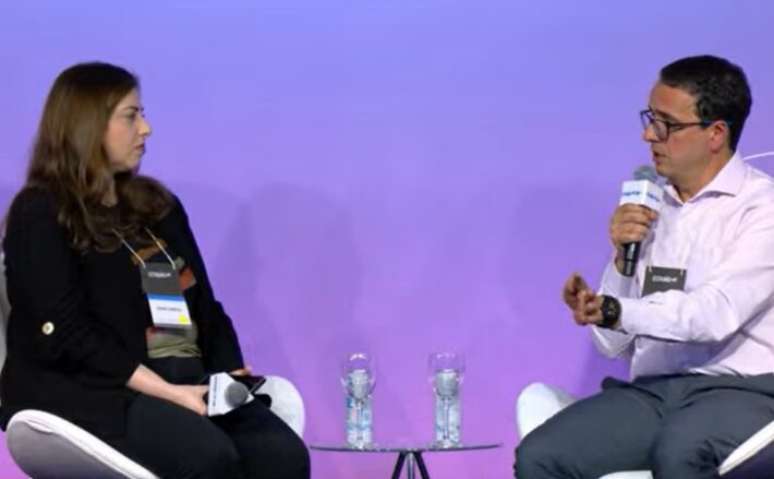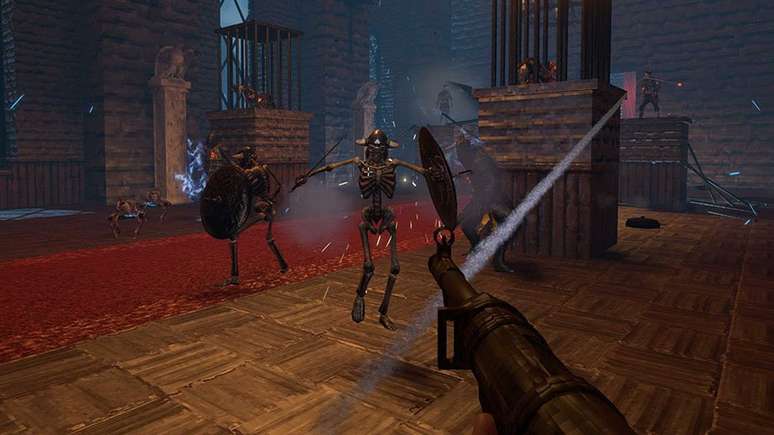Ministers at the Federal Court (STF) will decide this week whether a delivery driver or app driver has an employment relationship with the company, in a new clash between the Court and Employment Tribunal. The court will also have to discuss electoral surpluses that define the distribution of seats for federal, state and city councilors in a ruling that will weigh on this year’s election dispute.
The two sentences are part of the agenda of the STF plenary, which will meet in two sessions, Wednesday 7th and Thursday 8th. Among the salient points is also the debate on the stability of employees hired through public competition in institutions such as Banco do Brasil and Caixa Federal Economy. Another issue will be to define whether it is possible to wear religious clothing that covers the head or part of the face in photographs of official documents.
Find out in detail the main discussions of the Court for this week:
Dismissal of employees hired through a public competition
On Wednesday, the highlighted ruling concerns the possibility of dismissing an employee from an indirect administration institution without just cause, in mixed economy companies, such as the Banco do Brasil – the subject of the provision in question – and from the Caixa Econômica Federal.
The appeal claims that employees hired through a public competition could only be dismissed for “duly ascertained just cause”. Banco do Brasil claims that, according to the STF, employees of joint-stock companies are not entitled to the same stability granted by the Federal Constitution to other public service employees.
The rapporteur of the case is with Minister Alexandre de Moraes and the Attorney General’s Office (PGR) has ruled against the appeal.
On Wednesday, the Court will also discuss the constitutionality of an amendment that sets sub-ceilings for public service in states, federal districts and municipalities. The request comes from the PSD, which specifies that the law generates different treatment in federal and state universities for teachers with the same training, who teach the same subjects.
On the same day, ministers are expected to judge two appeals that question the constitutionality of a law that determines the uploading of programming channels for compulsory distribution to pay TV distributors.
Use of religious costumes in photos of official documents
On Thursday 8, the STF is expected to discuss an appeal presented by the Union which questions the use of religious clothing covering the head or part of the face in the photograph on the national driving license (CNH). The question arises whether it is possible, in the name of the right to freedom of belief and religion, to exempt a part of the population from the obligation imposed on all citizens not to have any ornaments or ornaments on the face or head in the driving license photograph.
The issue arises from the request that nuns who are part of Catholic religious congregations and orders can wear the nun’s habit in the photo, as long as they demonstrate to Detran that they are part of officially recognized organizations.
The rapporteur of the case is the President of the Court, Luís Roberto Barroso, but the trial was included in the calendar only for the reading of the report and the conduct of the oral arguments. The test session will have to be scheduled later.
Distribution of electoral surpluses
Also on Thursday, the Court will discuss three appeals of direct unconstitutionality which concern the distribution of electoral surpluses. The Rede Sustentabilidade party questions the constitutionality of the change approved by Congress in the Electoral Code in 2021, which provides for the distribution of the so-called “surpluses”, vacant seats left in proportional elections after the definition of the names and the most voted parties, more rigidly. PSB and Podemos are calling for the annulment of part of the TSE resolution which adds criteria to the law itself for the distribution of these seats.
In the proportional system, those elected are chosen on the basis of the votes attributed not only to each candidate, but also to the parties. The definition of those elected occurs with the calculation, in order, of the electoral quotient, the party quotient and the “residuals” of this account, which are now the subject of an appeal in the STF.
The contested law establishes that only parties and candidates who have reached a minimum percentage of the electoral quotient can compete for the seats that remain thanks to these fractions and the complete calculation process, which also takes into account the barrier clause, valid since 2015. This clause determines that, to be elected, a candidate must obtain at least 10% of the electoral quotient.
The 2021 law goes further and limits the right to compete for the remaining seats to parties and candidates who have achieved at least 80% and 20% of the electoral quotient respectively. In practice, the rule favors larger parties.
As shown by Estadao, if the STF’s decision had an effect on the 2022 elections, the actions could “undo” the election of seven federal deputies. Nonetheless, the ministers’ decision should weigh on the political game this year, since the favorable vote of the rapporteur Ricardo Lewandowski determines its entry into force starting from the municipal elections.
Employment relationship with applications
The last debate on Thursday’s agenda is a new episode in the clash between the Federal Court and the Labor Court. This is an appeal aimed at requesting an injunction by an application company against union decisions that recognized the employment relationship of the applicators with the companies responsible for managing the apps.
As shown by EstadaoIn December, the STF decided to look into a similar matter to stop what minister Alexandre de Moraes called “disobedience” by the Labor Court. According to the judge, the Supreme Court’s position has been “disrespected” by the labor courts, as the Court has already made decisions, both class and monocratic, canceling the employment relationship in cases of this type.
The dispute between the bodies of the Judiciary has reached the point of involving the National Council of Justice (CNJ), called to investigate violations of decisions.
Source: Terra
Rose James is a Gossipify movie and series reviewer known for her in-depth analysis and unique perspective on the latest releases. With a background in film studies, she provides engaging and informative reviews, and keeps readers up to date with industry trends and emerging talents.







